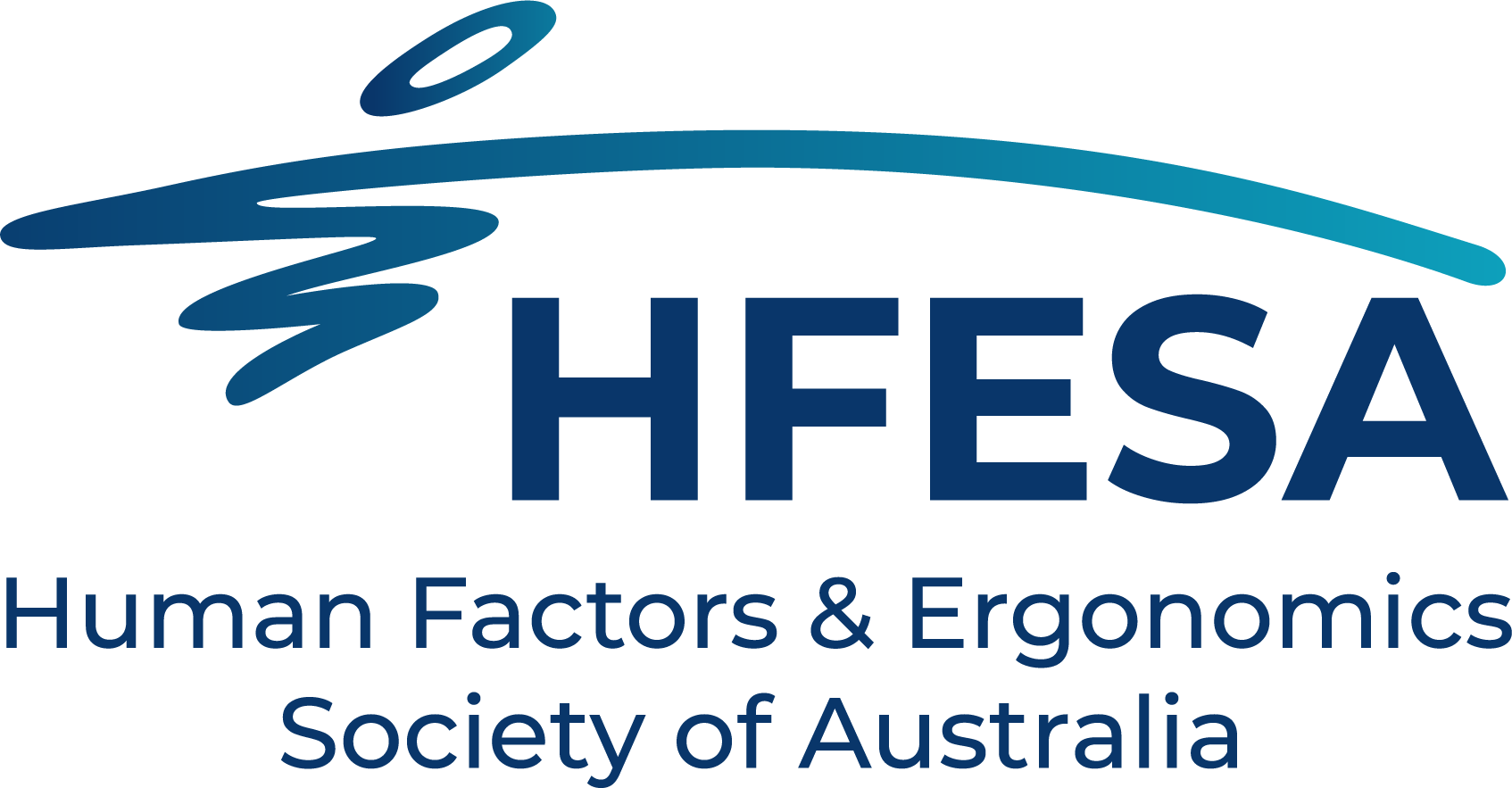Knowledge Through Networking & Sharing (KTNS) – QLD PD

The QLD branch are holding the Knowledge Through Networking & Sharing (KTNS) event in September 2023.
When: Friday 8 September 2023
Where: Gibson room, QUT Gardens Point, Z block – Level 10
Cost: half day and full day registration options as below
Note: for registrants attending the morning session, you will be provided with morning tea and lunch. For registrants attending all day you will also be provided with lunch and afternoon tea.
| Time | Activity | Presenter | Presentation title |
| 8:30-9:00 | Registration | ||
| 9:00-9:10 | Welcome | ||
| 9:10-9:40 | Presentation 1 | Zohre Abedi | Return to work after a road traffic injury in Queensland: A system mapping study |
| 9:45 – 10:15 | Presentation 2 | Elise Crawford | Empowering stakeholders through genuine participation: lessons from non-workplace domains |
| 10:15 – 10:55 | Coffee & Tea – Networking | ||
| 10:55-11:25 | Presentation 3 | Richard Leung | The Lego Challenge – does wearing PPE impact on communication, mental load and wellbeing? |
| 11:30-12:00 | Presentation 4 | Sara Pazell | Scenario-based hazard education in mining tyre handling with digital twin environments |
| 12:00-13:00 | Lunch – Networking | ||
| 13:00-14:15 | Workshop 1 | Gemma Read | Introduction to Cognitive Work Analysis |
| 14:15-14:30 | Coffee & Tea – Networking | ||
| 14:30-15:45 | Workshop 2 | Maureen Hassall | Is there a SAfER way? |
| 15:45-16:00 | Coffee & Tea – Networking | ||
| 16:00-17:15 | Workshop 3 | Brian Thoroman | Applying AcciMap: workshop |
| 17:15-17:30 | Closing remarks and thanks |
Presentation 1: Dr Zohre Abedi

| Presenter | Dr Zohre Abedi |
| Affiliation | University of the Sunshine Coast |
| Bio | Zohre Abedi is a Research Fellow at the Centre for Human Factors and Sociotechnical Systems. Her current research focuses on developing a toolkit for managing distracted driving in Australia. Zohre has a background in healthcare and rehabilitation sciences and has completed a MSc in Human Factors and Ergonomics. Zohre chose to pursue her doctoral studies at the University of Queensland, investigating factors impacting the return-to-work system following road traffic injuries. Throughout her studies and employment, Zohre has worked with internal researchers and external stakeholders in the areas of injury prevention, injury management, and Human Factors and Ergonomics and has been active in research, education, and practice in these fields for over 10 years. |
| Presentation title | Return to work after a road traffic injury in Queensland: A system mapping study |
| Synopsis | Reduced work ability due to road traffic injuries is reported to have a negative influence on injured persons’ health and financial situation as well as their families and workplace. A better understanding of the factors impacting return to work following musculoskeletal RTI would facilitate recovery of injured individuals and reduce associated personal and societal costs. This study aimed to (1) identify the factors that influence the return to work after minor to serious musculoskeletal road traffic injuries in Queensland, and (2) examine the interactions and inter-relationships between these factors using the Accimap risk management framework. |
Presenter 2: Elise Crawford

| Presenter | Dr Elise Crawford |
| Affiliation | CQUniversity Australia |
| Bio | Elise is a Senior Lecturer at CQUni who specialises in professional practice in the areas of Human Factors and the Safety Sciences. She is a design enthusiast who advocates practices that advance adaptability, innovation, health, safety, and wellbeing for sustainable working futures. |
| Presentation title | Empowering stakeholders through genuine participation: lessons from non-workplace domains |
| Synopsis | Participatory ergonomics is highly regarded for improving work conditions. However, there is growing concern that participatory ergonomics is losing its authenticity and joining the growing list of tick-and-flick safety management exercises. At the same time, the prevalence of stakeholder participation is expanding in other sectors, for non-regulatory reasons, and potentially for more genuine reasons. In this presentation I provide a brief overview of participatory ergonomics, and the reasons for its application in workplace settings. This is contrasted by a survey of self-populating participatory practices to identifying learning opportunities for regaining ‘genuine’ participation in the workplace domain. |
Presenter 3: Mr Richard Leung

| Speaker | Richard Leung |
| Affiliation | The University of Queensland |
| Bio | Richard Leung is a PhD candidate from the University of Queensland with a background in occupational health and safety science and biomedical science. He has firsthand knowledge and experience in working with near-miss, accident, and incident data from various industries during his time as a postgraduate student and data analyst. |
| Presentation title | The Lego Challenge – does wearing PPE impact on communication, mental load and wellbeing? |
| Synopsis | Hearing speech or picking up on important sound cues from a noisy environment can be difficult. This task is even more difficult in hazardous environments that requires everyone onsite to wear personal protective equipment (PPE) that can interfere with audio-visual speech transmission pathways, such as hearing and respiratory protection. This study investigated the effects of wearing such PPE on stress, cognitive load, and task performance using an instructional task involving Lego. The wearing of PPE resulted in increased levels of stress, cognitive load, and mental fatigue, and higher counts of errors made during the task suggesting negative cognitive effects. |
Presenter 4: Dr Sara Pazell

| Presenter | Dr Sara Pazell |
| Affiliation | ViVA health at work |
| Bio | Sara is active in consulting, teaching, and researching on good work design initiatives. She is a perpetual student of human factors and ergonomics. |
| Presentation title | Scenario-based hazard education in mining tyre handling with digital twin environments |
| Synopsis | The hazards within safety critical environments, like mining tyre handling, can be appreciated by human factors’ cognitive think aloud and role-playing methods. This presentation will discuss the application of these methods using a Control Framework Approach and animated digital twin environments to explain the modes of credible system failures. |
Workshop 1: A/Prof Gemma Read

| Facilitator | A/Prof Gemma Read |
| Affiliation | University of the Sunshine Coast |
| Bio | Associate Professor Gemma Read is the Co-Director of the Centre for Human Factors and Sociotechnical Systems at the University of the Sunshine Coast. Gemma has over 15 years’ experience applying human factors and systems thinking methods, including Cognitive Work Analysis, to improve safety and optimise performance in a range of domains. |
| Workshop title | Introduction to Cognitive Work Analysis |
| Synopsis | Cognitive Work Analysis (CWA) is a systems-based framework for analysing
behaviour within sociotechnical systems. CWA provides a way to describe a system in a holistic way, and to explore how the design of the system influences behaviour. This workshop will cover the background to CWA and its benefits followed by practical information on how to use the first analysis phase, Work Domain Analysis, to better understand system functioning and identify insights for improving system design. |
Workshop 2: Prof Maureen Hassall

| Facilitator | Professor Maureen Hassall |
| Affiliation | The University of Queensland |
| Bio | Maureen Hassall is Professor and Director of the Minerals Industry Safety and Health Centre at UQ. She leads research, industry training, undergraduate and postgraduate education programs and consulting projects focusing on human factors, risk management, and systems/process safety. Maureen is a certified practicing ergonomist and a registered and chartered engineer. |
| Workshop title | Is there a SAfER way? |
| Synopsis | The workshop will explore recent research into SAfER a formative approach to human factors analysis. It will include practical exercises associated with 1) scoping an analysis, 2) taking a human centred design approach to situation assessment, 3) identifying the variety of human responses that might be executed in both normal and abnormal situations and 4) analysing those response to identify the system design interventions required to help humans deliver successful outcomes. |
Workshop 3: Dr Brian Thoroman

| Facilitator | Dr. Brian Thoroman |
| Affiliation / Employer | Hyundai-Rotem |
| Bio | Dr. Brian Thoroman has over ten years’ experience applying Human Factors in safety and risk management. His PhD research developed a systems thinking-based method extension of AcciMap for understanding effective work practices in near miss incidents. He currently works in Human Factors and Ergonomics within the Australian rail industry |
| Workshop title | Applying AcciMap: Workshop |
| Synopsis | This workshop provides participants with the skills and knowledge to apply the AcciMap incident analysis method. AcciMap represents incident data in a visual format that highlights the interactions and relationships amongst decisions and actions across multiple levels of a system hierarchy. AcciMap is a highly flexible and customisable tool, applicable to incident analysis in any domain.
The format of the workshop is interactive and practical. The model of accident causation underlying AcciMap will be introduced, with most of the session consisting of discussing and working through real examples as a group. Templates and materials will be provided. |
For HFESA members – please log in to your account first prior to registering to attend.
For students – please email the secretariat@ergonomics.org.au if you need any assistance to register.
Bookings
Bookings are closed for this event.
